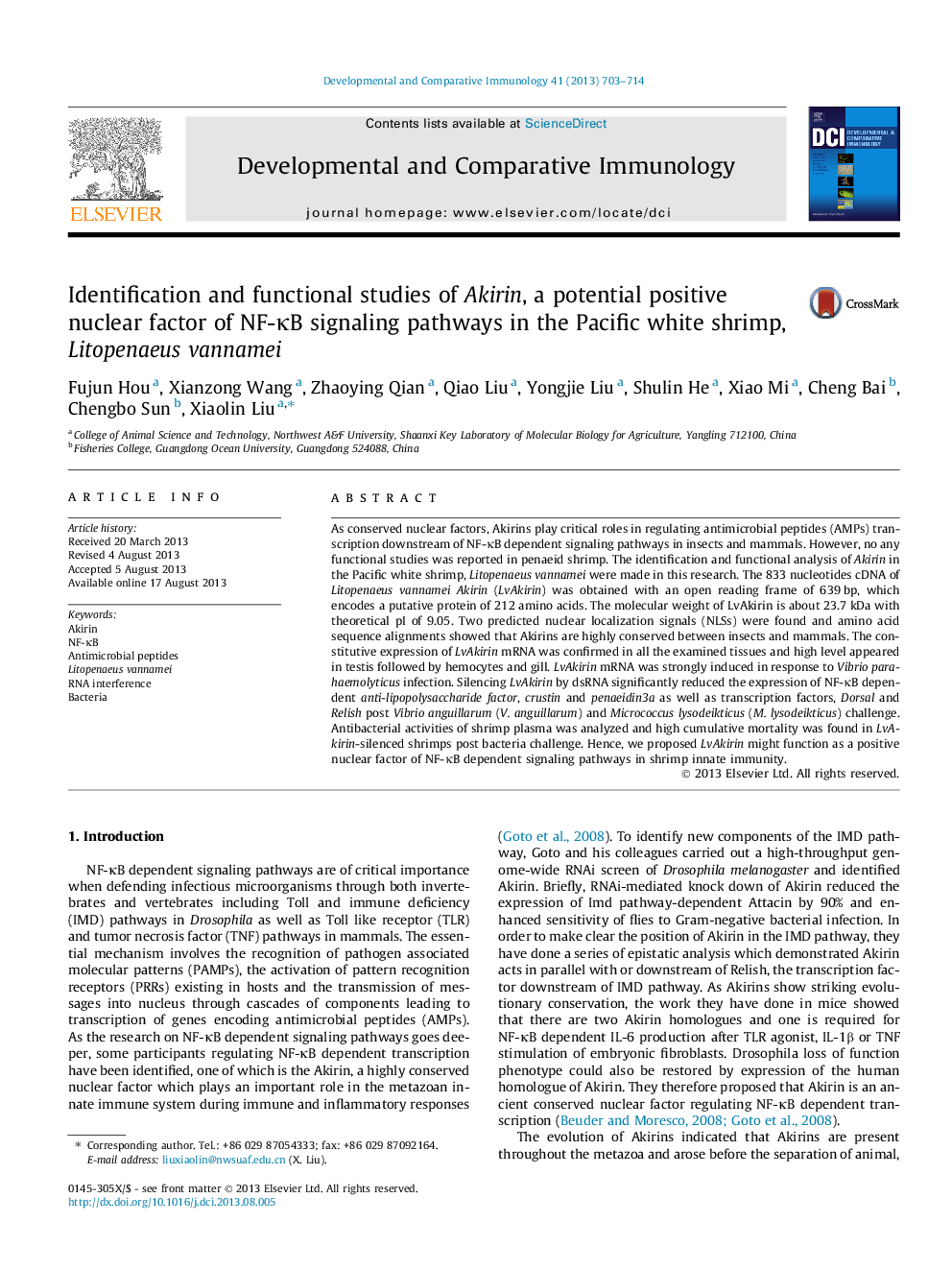| Article ID | Journal | Published Year | Pages | File Type |
|---|---|---|---|---|
| 10971620 | Developmental & Comparative Immunology | 2013 | 12 Pages |
Abstract
As conserved nuclear factors, Akirins play critical roles in regulating antimicrobial peptides (AMPs) transcription downstream of NF-κB dependent signaling pathways in insects and mammals. However, no any functional studies was reported in penaeid shrimp. The identification and functional analysis of Akirin in the Pacific white shrimp, Litopenaeus vannamei were made in this research. The 833 nucleotides cDNA of Litopenaeus vannamei Akirin (LvAkirin) was obtained with an open reading frame of 639 bp, which encodes a putative protein of 212 amino acids. The molecular weight of LvAkirin is about 23.7 kDa with theoretical pI of 9.05. Two predicted nuclear localization signals (NLSs) were found and amino acid sequence alignments showed that Akirins are highly conserved between insects and mammals. The constitutive expression of LvAkirin mRNA was confirmed in all the examined tissues and high level appeared in testis followed by hemocytes and gill. LvAkirin mRNA was strongly induced in response to Vibrio parahaemolyticus infection. Silencing LvAkirin by dsRNA significantly reduced the expression of NF-κB dependent anti-lipopolysaccharide factor, crustin and penaeidin3a as well as transcription factors, Dorsal and Relish post Vibrio anguillarum (V. anguillarum) and Micrococcus lysodeikticus (M. lysodeikticus) challenge. Antibacterial activities of shrimp plasma was analyzed and high cumulative mortality was found in LvAkirin-silenced shrimps post bacteria challenge. Hence, we proposed LvAkirin might function as a positive nuclear factor of NF-κB dependent signaling pathways in shrimp innate immunity.
Related Topics
Life Sciences
Biochemistry, Genetics and Molecular Biology
Developmental Biology
Authors
Fujun Hou, Xianzong Wang, Zhaoying Qian, Qiao Liu, Yongjie Liu, Shulin He, Xiao Mi, Cheng Bai, Chengbo Sun, Xiaolin Liu,
